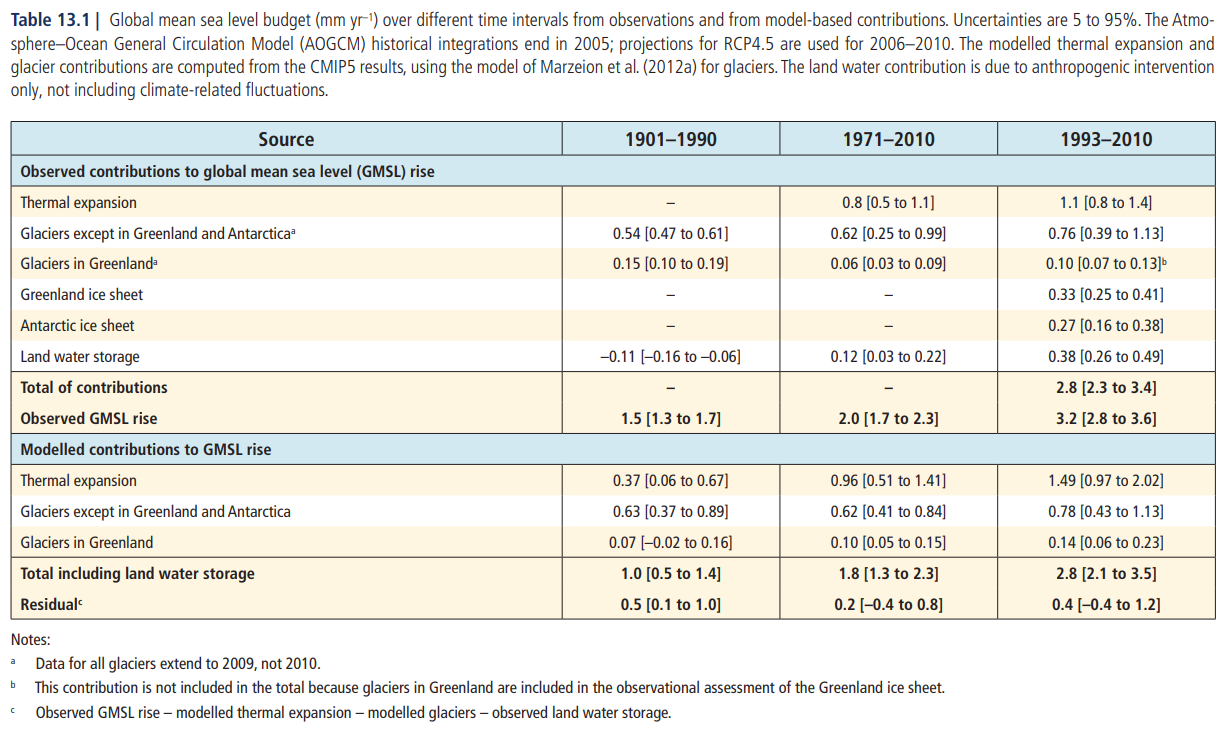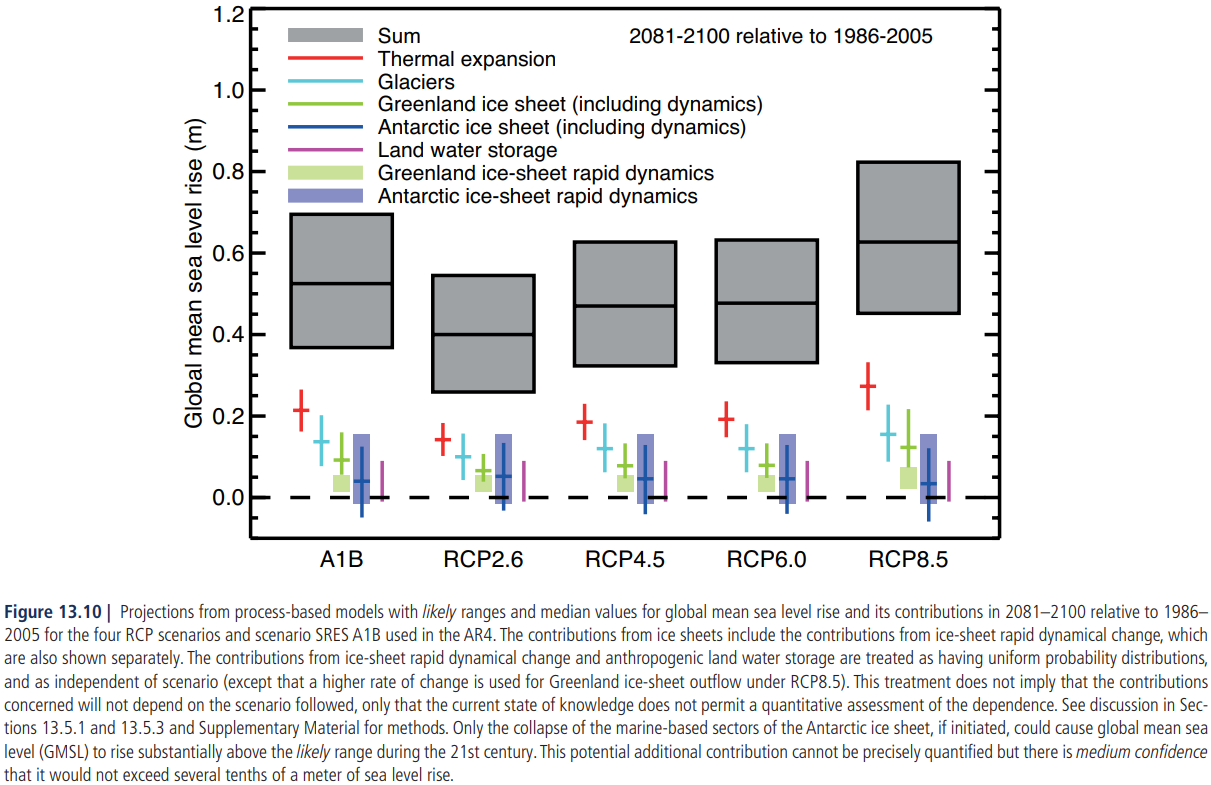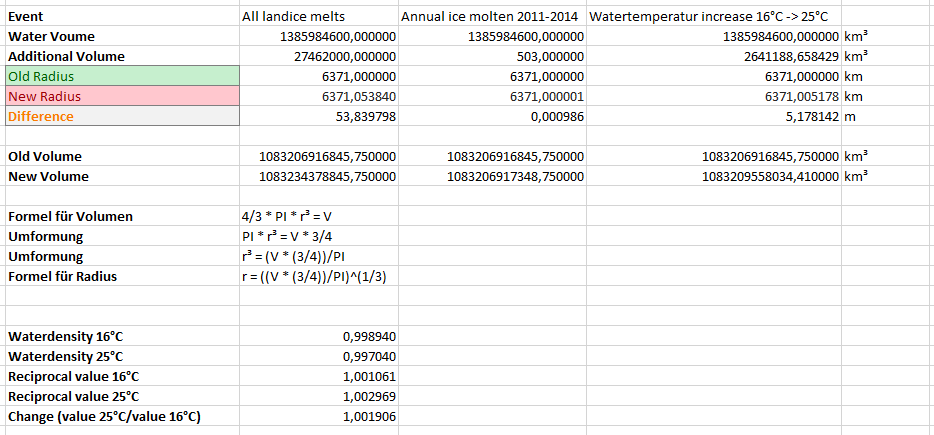Beside some unnecessary simplifications (like assuming the whole Earth is cover with water) The numbers looks right. IPCC predictions are between 0.3 and 0.8 meters by year 2100 for the most likely scenarios, and I find that perfectly consistent with your numbers.
Your calculation yields about 0.98 mm per year from glaciers, which using the actual surface of the sea (361,132,000 km$^2$), gives a more accurate value of 1.39 mm per year.
Look at the IPCC observations and models summarized on table 13.1 of the Chapter "Sea level Rise" of the Assesment Report 5:

For the latest period, if you add up all land ice contributions you get that they are between 0.87 and 2.05 mm/yr, totally consistent with your estimation (of ~1 mm).
The largest single contribution is thermal expansion with 0.8 to 1.4 mm/yr.
Also note that the observed contribution don't quite add up to the observed sea level rise, so we are either sub-estimating some contributions or ignoring significant ones.
If you multiply the current 3.2 mm/yr by 80 years you get ~26 cm by year 2100, but the point is that the rate of sea level rise is increasing (see this answer). That is why all predictions are above that value.
For future predictions, thermal expansion is still the leading cause of sea level rise, as you can see on figure 3.10 of the same IPCC report:

I find these predictions consistent with your numbers if you consider the current acceleration on the sea level rise rate. Unless you are talking of other predictions, not the IPCC ones. Or maybe you think that half a meter of sea level rise over 80 years is not much. If that's the case, I suggest you to research what would be the impacts in land loss, infrastructure loss and human populations displacements of such sea level rise.


